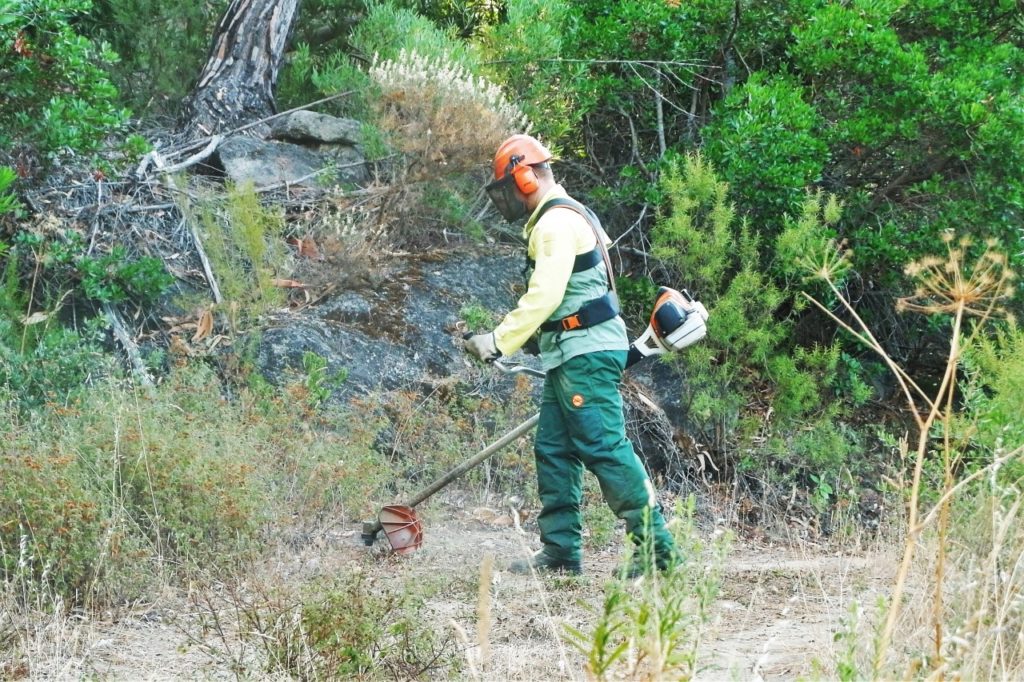Protecting Portugal from serious rural fires is the integrated vision of the National Plan for Integrated Management of Rural Fires (PNGIFR), published today in Diário da República and that it will imply a strong mobilization of all public and private entities so that the country can reduce by half, in the next ten years, the area annually burned by rural fires.
The PNGIFR covers the period 2020-2030 and is composed of two documents: the 20•30 Strategy and its Process Chain, as well as the Action Program.
The document that was published today is the first of these, the 20•30 Strategy and Process Chain, which identifies the two axes considered essential for reducing the impact of rural fires: Rural Fire Management (GFR) and Fire Protection Rural Areas (PCIR).
The Plan was under public discussion and was presented in more than 60 public sessions, with various entities such as the Intermunicipal Commissions, District Commissions for the Defense of the Forest, District Operational Coordination Centers, Forest Producers' Organizations, Order of Engineers, NGOs, Economic Council and Social, National Forest Council, among other public presentations at different polytechnics across the country, from North to South.
Valuing the territory and modifying behavior
"Valuing the territory, taking care of rural spaces, modifying behavior and efficiently managing risk are the four major strategic guidelines of the Plan, which is implemented on the ground based on Regional Action Programs, where priorities and projects to be developed over time are established, with defined budgets and performance and result indicators”, stresses the Ministry of Environment and Climate Action, in a note sent to the editorial staff.
The PNGIFR, through the action programs, constitutes “a process of co-construction with the interested parties, integrated mechanisms for the management of rural fire and protection of people and goods, simultaneously seeking to develop and enhance rural territories”, adds the same note.
For this, the Plan establishes «a new governance and risk management model, with articulation between public and private entities from different sectors and at different territorial scales, and a system for monitoring and evaluating indicators», explains the Ministry of Environment.
It implies “the implementation of a value chain and its processes, in order to support the activity, from planning to post-event, called the Integrated Management System for Rural Fires – SGIFR”.
The Ministry of the Environment also said, in its note, that the PNGIFR would involve an estimated investment of 500 million euros per year (public and private), "so that the country will be able to reduce by half the area annually burned in rural fires and reduce the damage caused by serious events'.
“It will be necessary to adopt a perspective of integrated and articulated development between the entities through investment in human resources, technology, systems, communication, infrastructure and incentives”, underlines the Ministry headed by João Matos Fernandes.
These investments "stimulate the rural economy, both in terms of forestry, agriculture and livestock as well as in rural tourism and indirect jobs in industries such as logistics and transport or catering and accommodation".
Therefore, it is estimated that these investments will result in the creation of around 60.000 jobs by 2030 (direct and indirect) in rural areas.
Fewer ignitions and less burned area in 2019
In the last two years, there was a 47% decrease in ignitions, compared to the 2008/17 period, and also a 69% decrease in the burnt area, compared to the 2008/17 average.
It is also worth noting the passage, in the period 2008/17, from 139 annual fires with more than 100 hectares, to 40 in 2018/19, and from 17 annual fires with more than 1000 hectares to 2 in 2018/19.
“However, the fire hazard is real and requires changing behavior. Owners must be motivated to associate and actively manage their forest and agricultural heritage, which represents 97% of the country”, the note adds.
The population, in general, “has to radically change its behavior towards the use of fire”. In fact, the numbers speak for themselves: 98% of fires are of human origin, 85% Fires start less than 500 meters from a road or from inhabited or cultivated areas and more than 60% are the result of bonfires, burns and poorly carried out fires .



















Comments